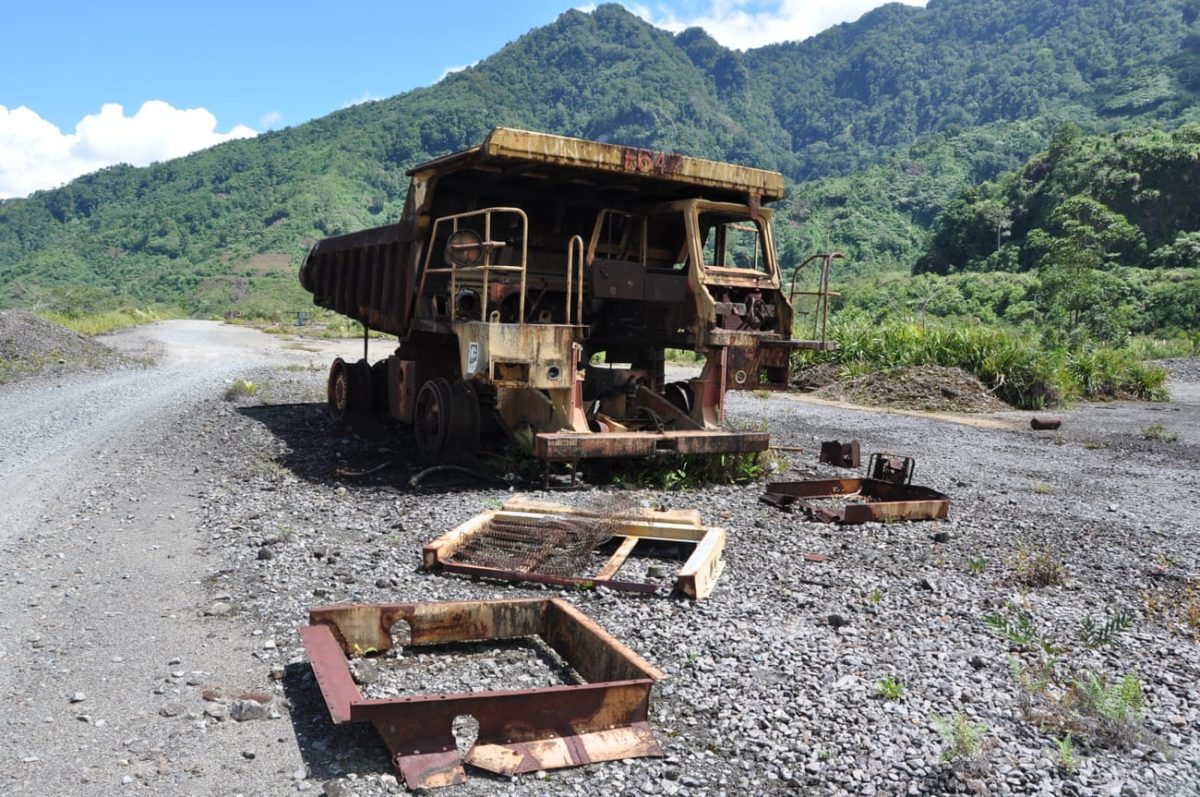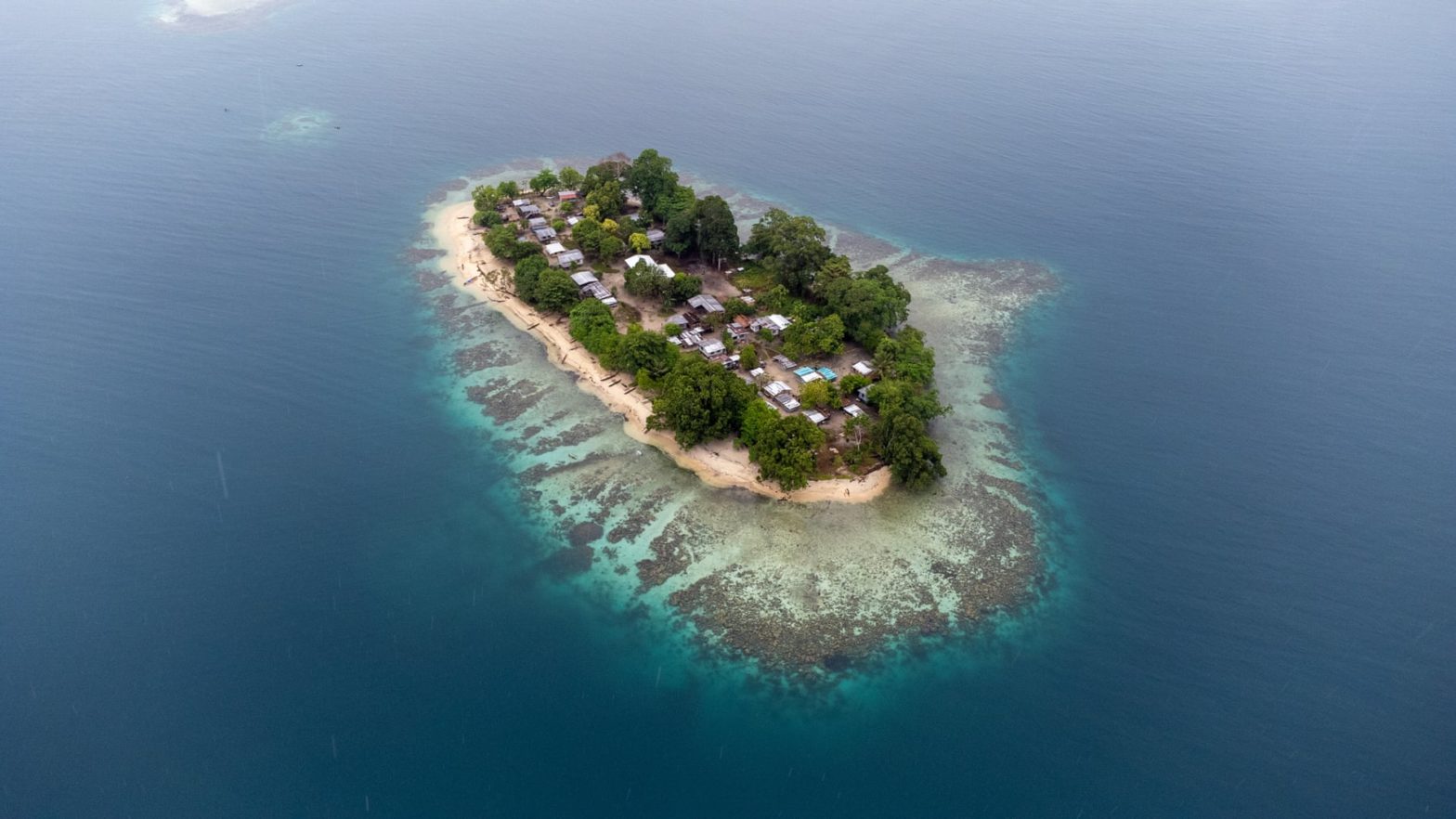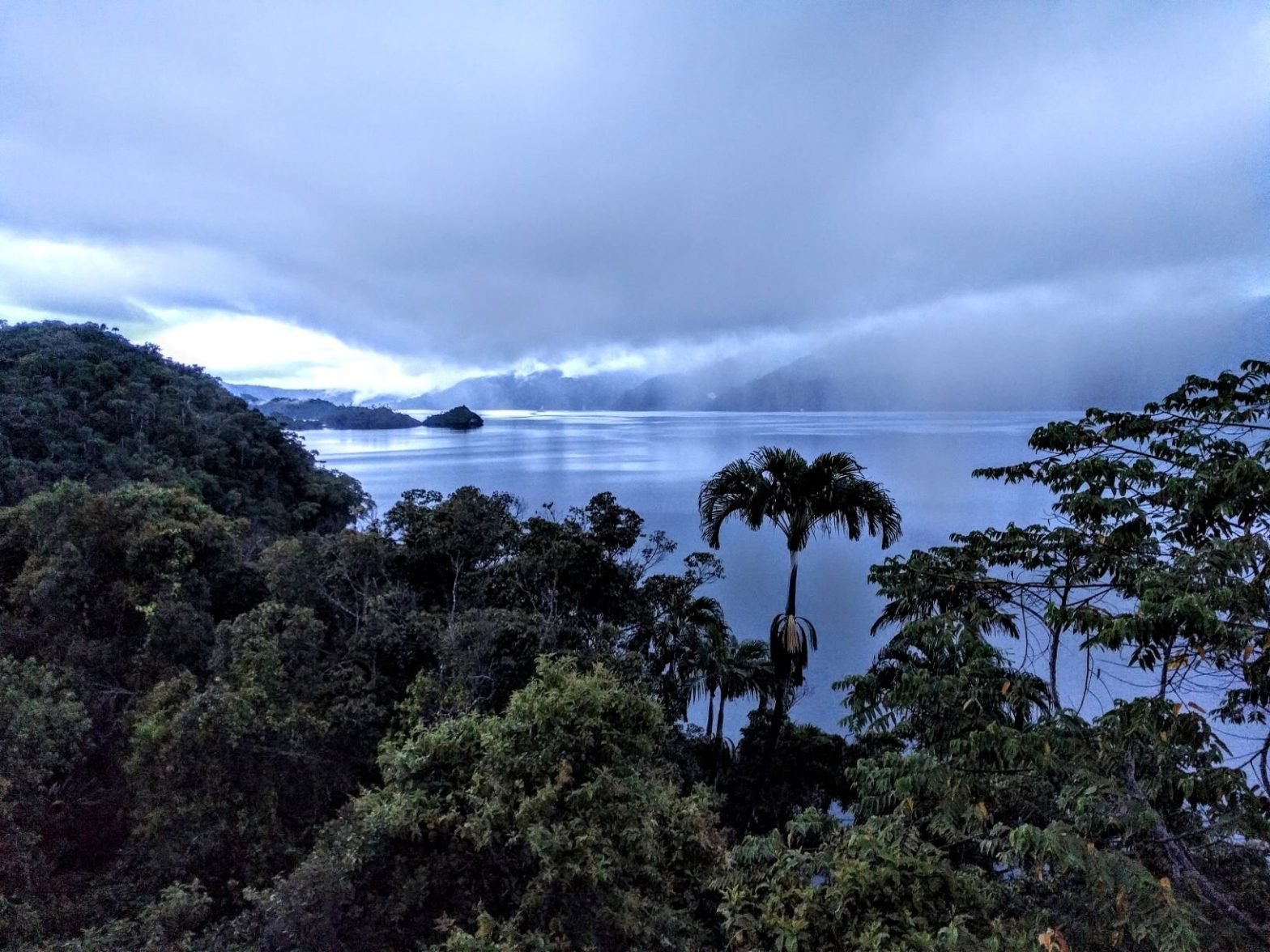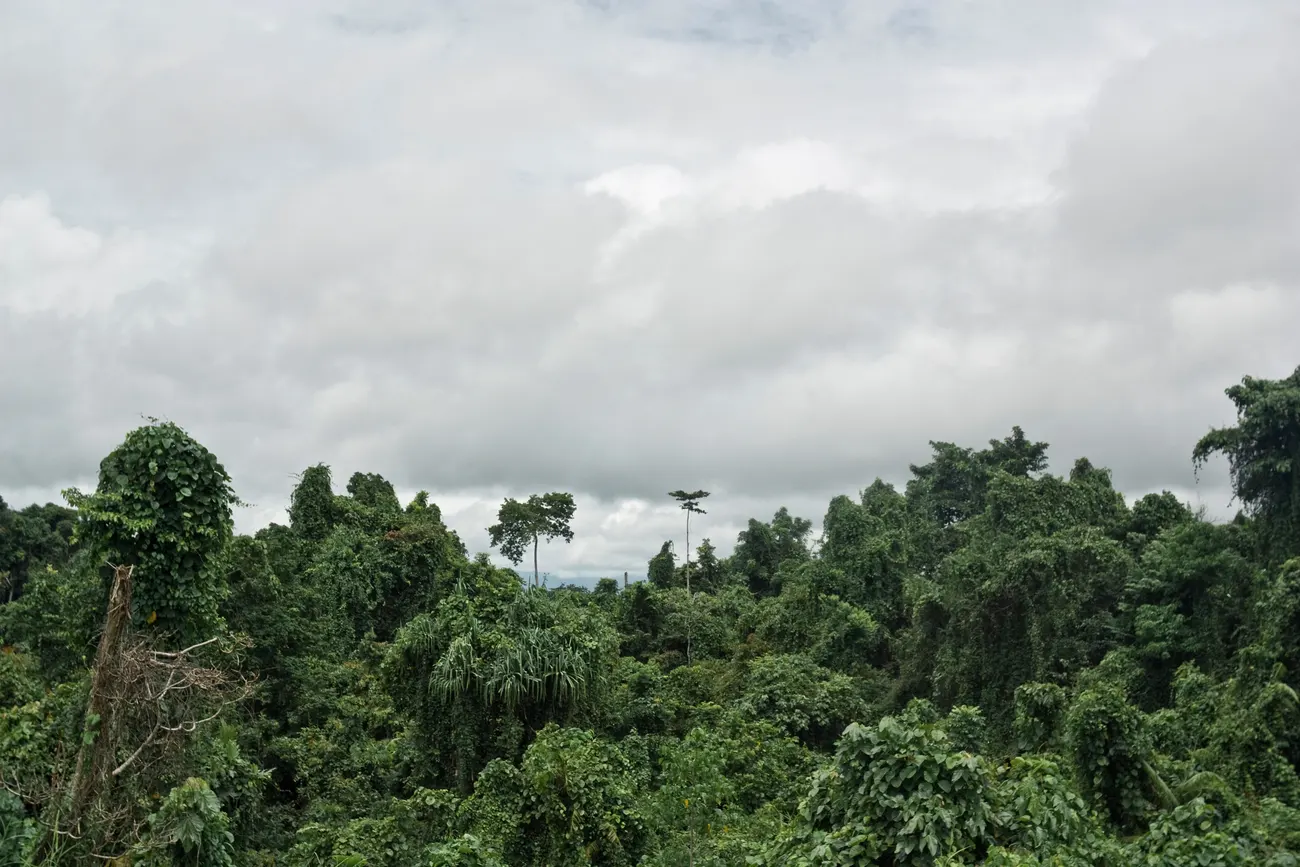The Pacific country’s concessionary tax system leads to ‘undertaxed’ resource sector and ‘no equity’ for people in Papua New Guinea
Australian mining companies have paid little or no corporate income tax in Papua New Guinea despite earning hundreds of millions of dollars from their PNG operations, benefiting from a complex taxation system that experts say leaves the country’s resources sector significantly “undertaxed”.
Guardian analysis of company reports and industry data can reveal that during the past decade Australian mining giants Newcrest and St Barbara, which have huge mines in PNG, have paid no corporate income tax some years, with the companies legally using generous tax rules and accounting practices to minimise their tax burdens.
PNG has vast natural resources, with gold, silver and copper mines dotted around the country, as well large petroleum and liquefied natural gas reserves, but comparatively little of the wealth from these resources makes its way into government coffers or trickles down into communities.
In 2018, oil and mineral products made up almost 90% of the value of Papua New Guinea’s exports but less than 10% of government revenues, according to the latest data from the Extractive Industries Transparency Initiative. Oil and mineral products contributed an even smaller share of government revenues in previous years.
This is partly due to PNG’s taxation system, which uses an additional profits or “rent tax” method of taxation, which is complex, rather than a more straightforward flat royalty rate.
Australian companies own and operate many of the largest mines in Papua New Guinea, and 97% of PNG’s gold exports go to Australia, but the royalties, salary and other taxes levied in PNG can add up to just a fraction of either the revenue or operating profit.
ASX-listed mining company St Barbara operates the Simberi mine, one of the largest goldmines in the world, in New Ireland province. The mine has generated AUD$199m (US$154) million) or more in revenues in each of the past four years, but paid nothing in income taxes to the PNG government between 2012 and 30 June 2020. Between 1 July and 31 December 2020, St Barbara paid AUD$7.7m (US$5.9 million0 gross in Papua New Guinea income tax.
Annual reports filed with the Australian Stock Exchange show that the mine booked gross profit greater than AUD$75m (US$58 million) in each of the 2020, 2019, 2018 and 2017 financial years. In the 2016 financial year, St Barbara’s Simberi operations booked AUD$170m (US$131 million) in revenue and AUD$50m (US$38 million) in gross profit.
Prior to last year, St Barbara’s Simberi Operations was not subject to corporate income tax in PNG, according to a company response to Guardian Australia questions, due to the “significant capital expenditure to develop the mine and its associated infrastructure, together with operating losses incurred in the early years of St Barbara’s ownership of the mine”.
“Since 2009, St Barbara’s Simberi Operations has delivered $31m (US$23 million) in royalties, paid an annual 0.5% production levy and contributed AUD$38m (US$29 million) in contracts to landowner businesses. The company pays 2.0% royalties, based on revenue,” the company said in a statement. It added it had invested more than AUD$43m (US$33 million) in the surrounding community, including in health, education and farming projects. “St Barbara respects and complies with tax obligations in all the markets in which it operates, including Papua New Guinea,” it said.
ASX-listed Newcrest Mining operates the Lihir goldmine on Aniolam Island in PNG.
Newcrest did not pay corporate income tax in PNG in the 2016 or 2017 financial years, according to the company’s tax contribution reports. The company did pay US$3m in corporate income tax in 2018, the last year a report was published.
Newcrest also pays other taxes, such as the US$27m in royalties, US$39m employee taxes, and US$14m in other taxes and levies it paid in 2018.
In that same year, its annual report shows Newcrest booked more than US$1.2bn in revenue from the Lihir mine. Earnings before interest and taxes for Lihir were US$261m.
In response to Guardian Australia’s questions, a Newcrest spokesperson said a lot had changed since 2018, the last year it released a tax contribution report, including the rising gold price, “which means that past tax payments are not a good indicator of future tax payments.”
The spokesperson said the company had paid a total tax contribution of PGK199m (AUD$74m) in the 2020 financial year, as well PGK629m (AUD$233m) in royalties between 2010 and June 2020. They also contributed PGK96m (AUD$35m) to “approved infrastructure developments on behalf of the PNG government through the tax credit scheme, which is deemed to be ‘prepaid’ company tax,” the spokesperson said.
“Since August 2010, Newcrest has invested more than US$3bn in capital expenditure into Lihir, which is a significant injection into PNG’s economy … The majority of this capital expenditure qualifies for tax depreciation as per the PNG tax law,” the spokesperson said.
“Our tax profile is in line with the operation of the PNG taxation law and we are fully compliant with the law.”
Both ASX-listed Crater Gold Mining and the recently de-listed Niuminco have reported losses on their annual reports for the past several years. Neither company could be reached for comment.
Guardian Australia does not suggest that any of these companies have broken any relevant laws.
Diane Kraal, a senior lecturer at Monash University, was appointed by the PNG government to research petroleum and mining tax reform in the country in 2014.
“Looking at the latest World Bank report in PNG, they confirm that the resource sector in PNG is undertaxed,” she said. “It’s undertaxed because of poor tax design and companies aren’t going to complain about that.”
“In PNG they have persisted with a rent tax and it hasn’t worked because it’s too complex,” said Kraal. “These things can be manipulated. I’m not saying Australian companies are doing the wrong thing, everyone’s got the right to minimise their tax burden, but there are more ways it can be manipulated than a royalty system.”
Sam Koim, commissioner-general of PNG’s Internal Revenue Commission, said the low taxes paid by foreign companies in PNG were due to its “very concessionary fiscal regime”.
“We’re mostly profit-based,” he said. “So if they don’t make a profit, they don’t pay taxes. On top of that, in most cases when projects are negotiated, we give a lot of concessions to these foreign companies to come and exploit our resources … That’s why a lot of the gains from natural resources haven’t been felt by PNG.”
A spokesperson for Newcrest said: “We support meaningful and well considered reform of the PNG tax system and actively participate in this process. Our tax policy states that we act with integrity and honesty in all jurisdictions where we have a presence. We do not engage in manipulative behaviour.”
Kraal said PNG’s taxation system meant there was “no equity” for the Papua New Guinean people and had crippled the government’s ability to provide basic services to its people, including coping with the current Covid outbreak.
“You can see one of the fallouts of the lack of revenue in the Covid environment … The mineral wealth they’ve got should well and truly be catering for the health needs of the population.”
Newcrest said it did not believe this assertion to be factually accurate.
The taxation system in PNG is a legacy from when PNG was an Australian colony and offered tax holidays and other exemptions to attract foreign investors, Kraal said.
“There’s a presence of multinational companies in PNG, including Australian companies, and they’re hugely powerful,” she said. “When huge companies start lobbying, you’ve got to have a strong press, you’ve got to have a strong government … and they don’t have that in PNG at the moment… They’ve got Covid, they’ve got economic contraction and they’ve got political problems and that just gives power to vested interests.”
Kraal said that while the taxation system in PNG needed reform, the responsibility for this lay with the PNG government and not the Australian companies, which she said were doing the “right thing” by shareholders in seeking to minimise their tax burden. “You can’t expect foreign companies to pay more tax than the legislation requires.”
Koim said James Marape, the country’s prime minister, had been fighting for PNG to get greater benefits from its natural resources since coming to power in 2019.
“Our government at the moment through the prime minister has a very strong emphasis on getting a better share of our resource endowments … We are hoping the strong will translates into a strong change in the fiscal regime through legislative enactment,” he said.
This story was produced by Josh Nicholas and Kate Lyons at The Guardian on 8 June 2021, reposted via PACNEWS.
Banner:A rusted truck remains at a Panguna mine in Bougainville, which recently voted for independence from Papua New Guinea, Photo: Ilya Gridneff/ AAP




